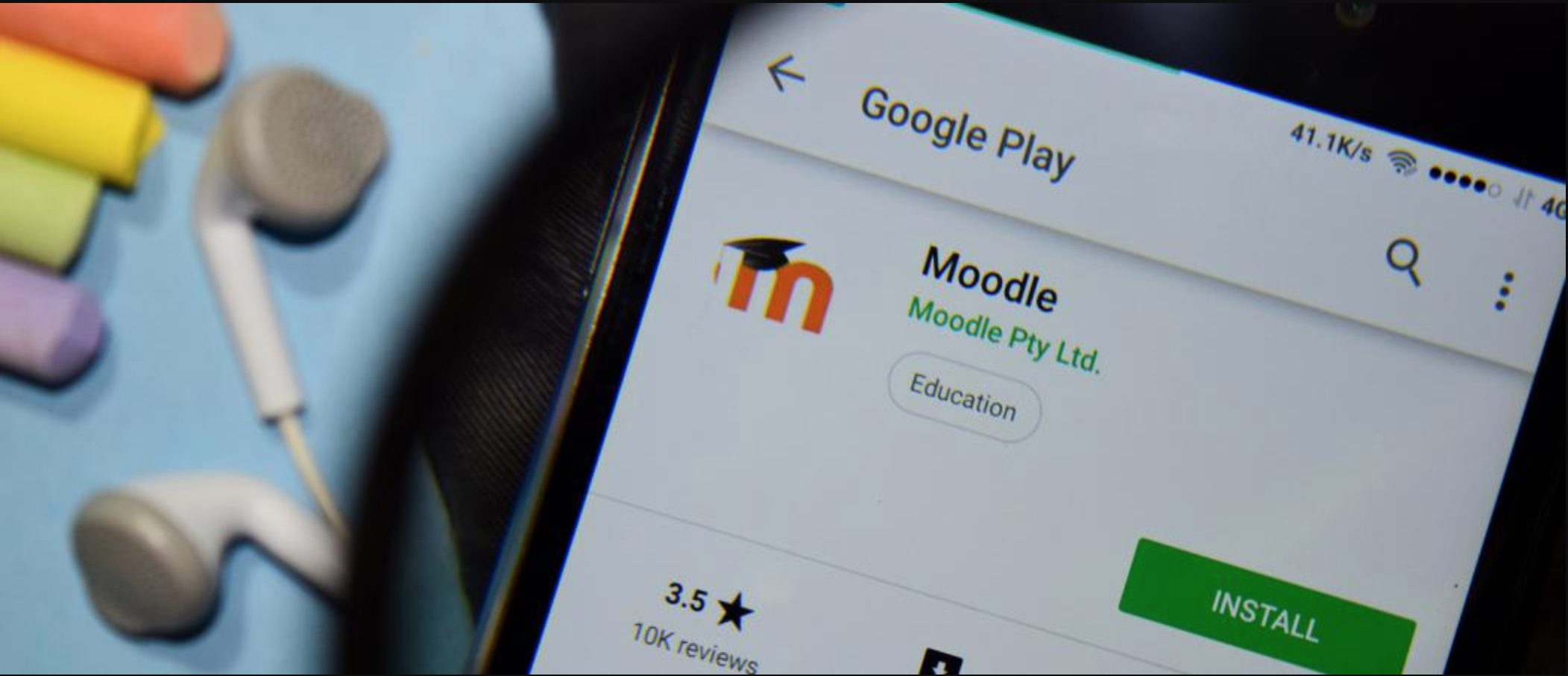Lost in Moodleland
Gallery

As the COVID-19 pandemic worsened in the United States, colleges and universities across the nation transitioned to remote learning, employing various educational services to serve as a “base” for online coursework. On March 12, President Russell Kavalhuna sent an email to all Henry Ford College students, stating that “all classes that can be offered online will be delivered online,” meaning that some courses, including culinary, lab-based science, and health programs would remain in-person. Time passed, conditions worsened, and as Michigan Governor Gretchen Whitmer released social distancing guidelines, President Kavalhuna narrowed in-person instruction to none.
As the conversion to distance learning expanded, new challenges arose. To begin, many students lack Internet access, the first and perhaps most important step in finishing the semester. In an interview with the Detroit Free Press, Liz Kolb, clinical associate professor of Education Technologies and Teacher Education at the University of Michigan, stated that “one of the things we know about online learning and virtual instruction is that it can increase some of the gaps that we have in education, especially around equity issues of low social-economic-status students and more affluent students.” Even though she was directly addressing grades K-12, the same disparities exist within the collegiate community. Even with Internet access, countless other issues could still present themselves.
HFC employs Moodle (“HFC Online”), an online “learning platform designed to provide educators, administrators, and learners with a single robust, secure and integrated system to create personalized learning environments.” The site allows instructors to upload assignments, host chat sessions, and connect students to other educational services. HFC Spanish instructor Maggie Rutkowski connects assignments from Padlet and Quizizz to ensure student engagement through a variety of mediums.
Instructors are doing what they can to make the transition as smooth as possible, but they’re often learning the technology as they teach it. At this point in the semester, it seems as though everyone is “lost in Moodleland,” noted HFC English professor Pedro San Antonio.
Scott Still, faculty chair of the Committee for Online Learning and Teaching for the School of Liberal Arts, stated that the most difficult part of the process has been successfully moving every class onto Moodle. “It was a pretty monumental task to get all of these courses transferred to online,” he said. “There were a lot of folks who had never even touched Moodle, or if they had, they had very little experience with it.” As with any skill, proficiency follows experience, so for instructors to adequately teach their students, they need to be well versed with the technology. Typically, additional certification-type classes are required to teach online courses, but due to the impromptu nature of moving classes online due to the pandemic, there was no way to enforce this procedure.
HFC faculty are dedicated to finishing the semester with the success of their students in mind. Angela Hathikhanavala, faculty chair of the English department, says that communication has been a crucial factor. “I’ve created a group with every English instructor who’s teaching right now, so that when something comes up and people need to take note of it, we can make sure that the word gets out more easily to everyone,” she said. Going further, Hathikhanavala has created partnerships between professors that do and do not understand the technology to ensure that all staff within the English department are up to speed.
To make things easier on the students, additional resources have been made available. Those without laptops or computers were encouraged to contact Vice President of Student Affairs Daniel Herbst to make arrangements to address their technology needs. For students living in areas without Internet access, Comcast and Charter Communications are providing free Internet-related services (not funded by HFC).
Additionally, independent staff members are taking it upon themselves to organize various tools to assist students with online learning. Located at the top of HFC Online is a “Student Orientation and Online Resources” tab, which provides links to Technical Support, online homework help, and access to a free Microsoft Office 365 account through HFC. Students still have the opportunity to schedule virtual meetings with advisors, counselors, and even the Writing Center. Chelsea Lonsdale, co-director of the Writing Center, worked tirelessly in the previous months to make the Writing Center “Moodle-accessible.” It was approved by HFC’s legal team just days before the campus shut down. Students can schedule live sessions with Writing Center respondents, or send in their work to be examined and returned at a later time. “I felt that it was important to maintain as much normalcy as possible,” Lonsdale said.
Students can find online resources and related information on HFC’s main website or at the college’s Moodle help desk at: hfcc.edu/online-learning.
